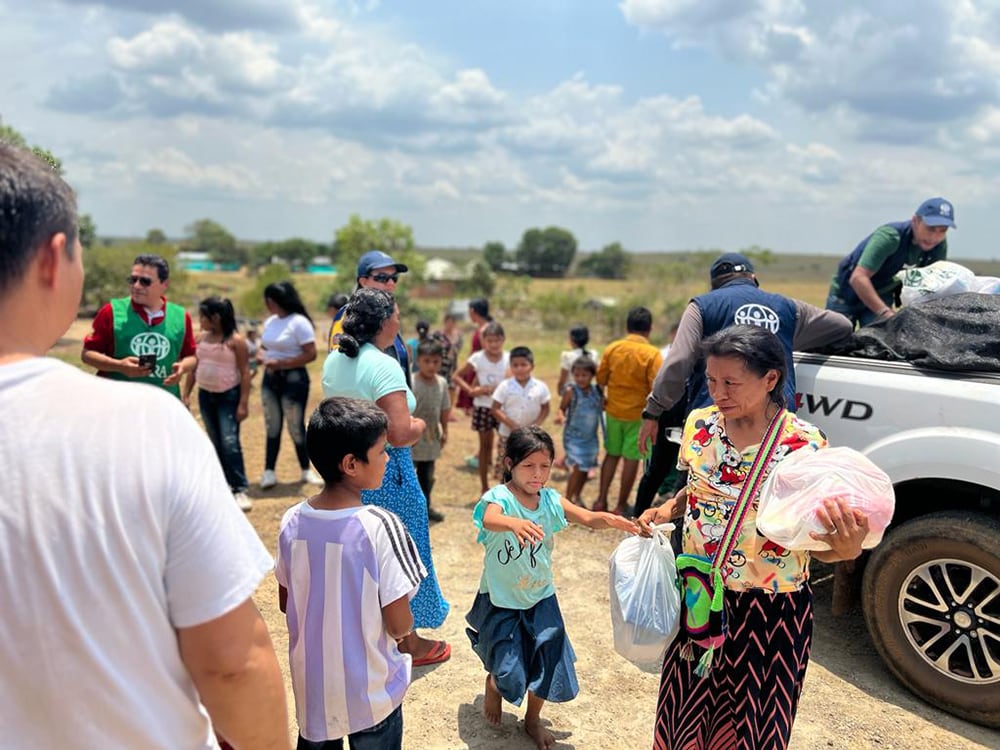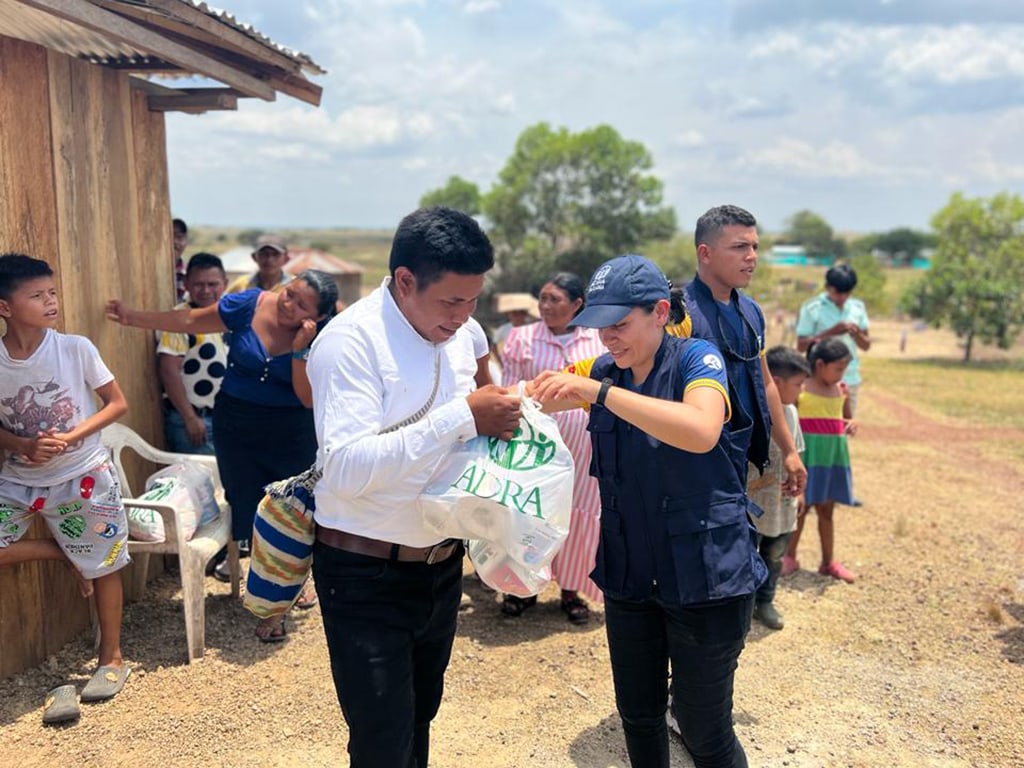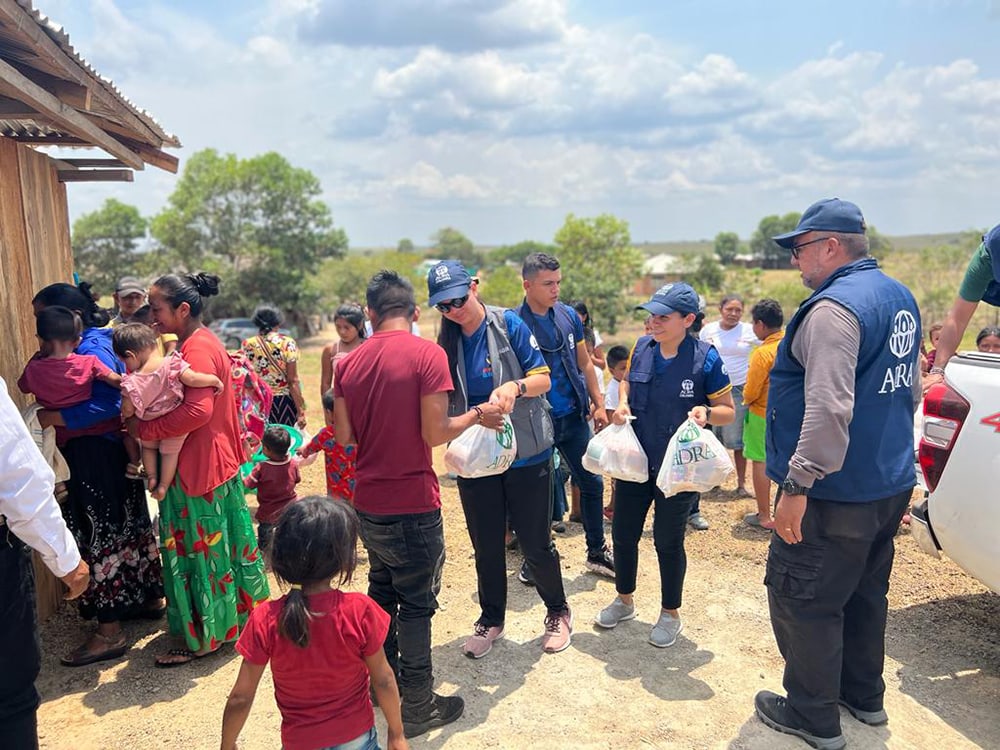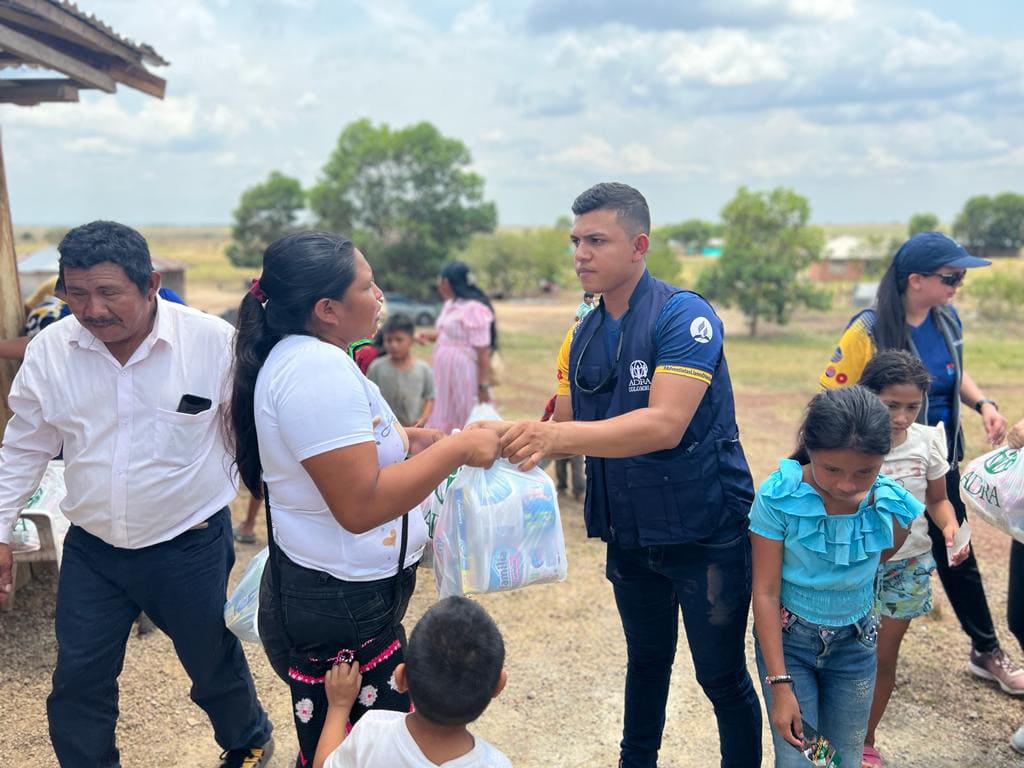
Dozens of indigenous families in the southern mountainous region of Los Llanos in southern Colombia received food baskets thanks to the evangelism work of Seventh-day Adventist Church leaders and the Adventist Development and Relief Agency (ADRA) in Colombia.
“As we have been visiting these indigenous communities and spending time with them, we have been able to identify some challenges they face and their need for food to feed their families,” Christian Soto, associate pastor of the Puerto López district, said. Soto, who has been regularly visiting the Awaliba and Guacoyo communities, said many families are in dire need of food, especially single mothers and their children.
Most of the indigenous communities depend solely on agriculture and selling their products among themselves, because it’s difficult to find job opportunities outside of their community, Soto explained. “Their main food source is cassava, from which they make other products, but their income is barely enough to cover their daily needs,” he added.
Church leaders have been doing evangelism work there, and even though indigenous communities receive some assistance from the government, the distances and the lack of resources make it difficult for food to get to the most remote areas, Carol Rojas, treasurer of the East Los Llanos Conference, explained. Rojas said the conference has been supporting evangelism work in the region for months. “ADRA Colombia got involved in filling this void and offers support to these communities in their struggle for ensuring they have food,” she said.
ADRA Colombia was able to distribute food baskets containing rice, flour, sugar, and other essential foods to 130 families, Elva Gómez, communication director for ADRA Colombia, said. “Families received hygiene kits, which included laundry detergent, bath soap, brushes, creams, and toilet paper,” Gómez said.
Soto added that communities appreciated the initiative. “The communities were so happy to receive the assistance and were able to be part of a special spiritual celebration during the time when we inaugurated two churches there,” he said.



The church and ADRA Colombia have been able to assist 21 communities in the Ikuani ethnic group, such as the Piapoco community. Many in the Piapoco community have accepted the Adventist message, Soto said. So far, 14 churches have been built in those communities, and a few more are in the process of being built, Soto explained.
“These indigenous communities have not only been assisted with their immediate needs but also their sense of community and mutual support has been strengthened,” Soto said.
Francisco Ramos, who is the pastor of the Millares de Angeles Adventist Church, said: “We are very grateful and hopeful to continue working with the population and holding onto God’s hand, so that He can continue strengthening us and doing our work with these communities.”
Church leaders will continue to work to minister and share the gospel with the communities, but they are still facing some language challenges, Soto said. “Each ethnic group has their own language, so the community leaders play a fundamental part in the translation of the messages, especially for the women and children, who have less knowledge of the Spanish language,” he said.
“The plan is to be able to [create] more translations in other languages so they can understand the message of Jesus in their native tongue,” Soto said.
The Adventist church and ADRA Colombia will continue to grow the work to expand the message of love and hope to more people in the indigenous communities, according to Soto. “We want to continue to get through some cultural and language barriers to offer a lasting impact in the life of those in the greatest need here,” he said.
The original version of this story was posted on the Inter-American Division news site.